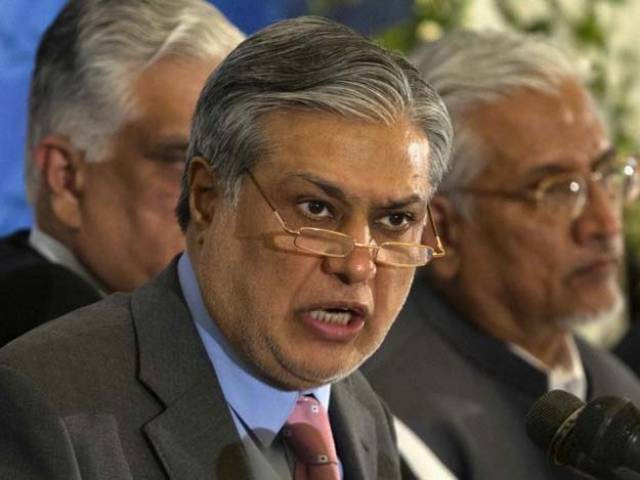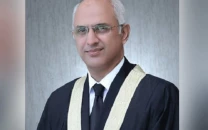Senate chairman snubs Ishaq Dar’s request for virtual oath
Sadiq Sanjrani says Constitution and rules of House do not allow the move

Senate Chairman Sadiq Sanjrani on Tuesday rejected the request of senator-elect Ishaq Dar of the PML-N to allow him to take his oath of office via video link or through the Pakistani High Commissioner in London. Dar had made the request citing that he could not come to the country due to his "prolonged illness and ongoing medical treatment".
The chairman of the upper house of parliament wrote a letter to Dar, pointing out that under Article 65 of the Constitution and Rule 6 of the Rules of Procedure and Conduct of Business in Senate, there was no scope for taking oath through video link or being sworn in in front of any other person i.e. the high commissioner.
He told the former finance minister that he would have to come to the House in person if he wanted to take the oath of his office.
The letter further read that under Rule 7 of the Senate, a senator was required to sign the roll after taking oath.
“Indeed Senate being part of parliament (Article 150) and an elected house governed by its own rules and procedures cannot be substituted by an individual like the high commissioner. Article 255 is not applicable to the taking of an oath before the Senate,” it added.
The chairman then reproduced these laws.
Article 65 of the Constitution reads: “A person elected to a House shall not sit or vote until he has made before the House oath in the form set out in the Third Schedule.”
Rules 6 of Senate under the title of “Oath of members” reads “A person elected as member shall, before taking seat in the Senate, make before the Senate oath in the form set out in the Third Schedule to the Constitution.”
Rule 7 of the Senate titled “Roll of members” states: “There shall be a Roll of Members which shall be signed by every member after making the oath before the Senate.”
Article 255 (1) of the Constitution reads: “An oath required to be made by a person under the Constitution shall [preferably be made in Urdu or] a language that is understood by that person.”
Dar, a close aide to former premier Nawaz Sharif who is also living in London for medical treatment, had gone to Dushanbe to attend the 16th Central Asia Regional Economic Cooperation Ministerial Conference and from there he had travelled to Jeddah.
In 2017, his counsel told an accountability court that Dar had fallen ill in Jeddah and subsequently had to go to London for medical treatment
He has not returned from London yet. In his letter to the Senate chairman – a copy of which has also been sent to the Election Commission of Pakistan (ECP) – Dar had stated that he would be unable to come to Pakistan in person for his oath-taking because of “prolonged illness and ongoing medical treatment within the United Kingdom”.
He had suggested taking the oath virtually through video call, adding that the method was already under use by courts in the country.
The PML-N leader had further written that if the oath could not be taken virtually then the Senate should arrange for it to be conducted by the Pakistani high commissioner to the UK or by an authorised person, as mentioned in Article 255 of the Constitution.
He had stated that as per clause 2 of Article 255 of the Constitution, the Senate chairperson could appoint an authorised person to deliver the oath to an elected senator.
Furthermore, the PML-N leader had also maintained that the legal dispute arising out of challenging his election to the Senate on March 3, 2018 had been resolved as the Supreme Court had rejected the civil appeal. Due to this, he had claimed, the apex court’s decision to suspend his membership had expired.
The PML-N leader had maintained that in light of the SC’s decision, the ECP on January 10 had withdrawn its notification suspending his victory on the Senate seat. He had said that he was ready to take oath as a senator after the legal hurdles were removed.



















COMMENTS
Comments are moderated and generally will be posted if they are on-topic and not abusive.
For more information, please see our Comments FAQ